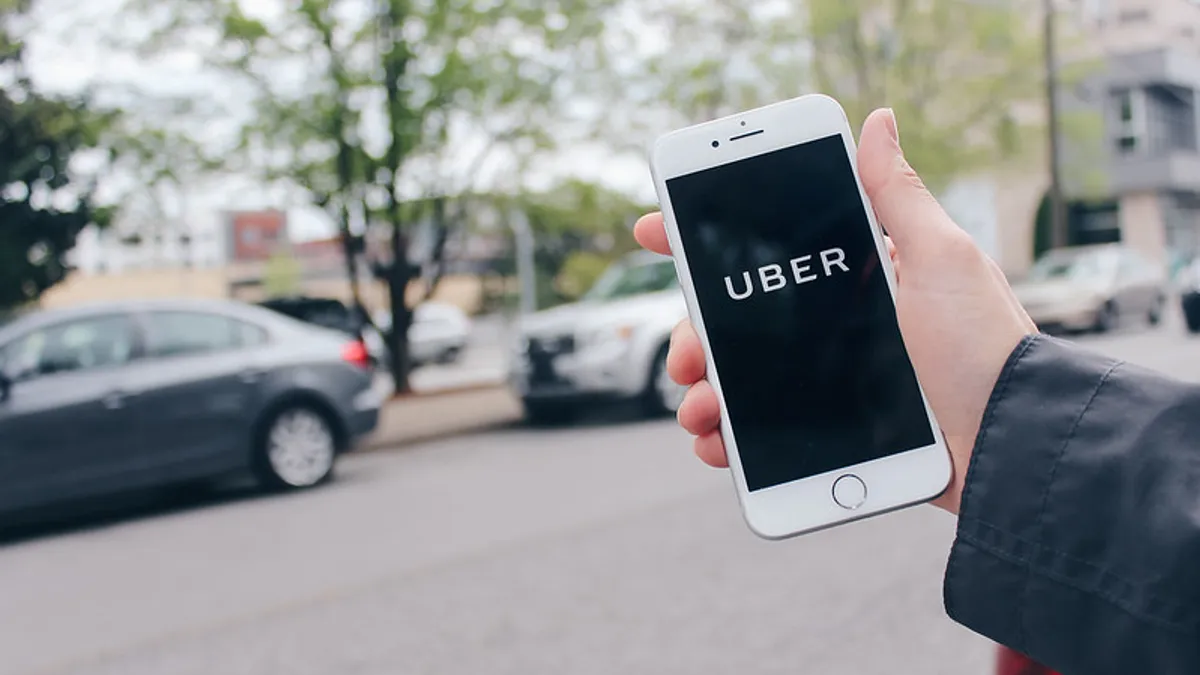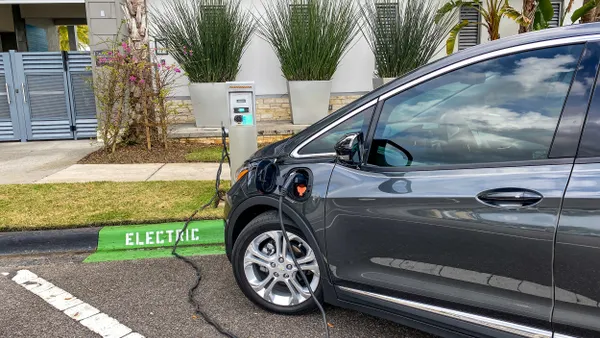Dive Brief:
- The U.S. House of Representatives on Wednesday passed Sami's Law, a bill that requires ride-hailing companies to implement a digital driver verification system for passengers to use when entering a vehicle.
- The legislation would also ban anyone except ride-hailing companies from selling identifying signage — such as stickers that indicate an Uber or Lyft vehicle — that drivers typically place on their windows, and would direct the Government Accountability Office (GAO) to study incidences of assaults and conduct background checks on prospective drivers.
- The bill, passed by voice vote, was named for Samantha Josephson, who was killed last year in Columbia, SC by a man pretending to be her Uber driver. The bill's future in the Senate is unclear.
Dive Insight:
This national effort follows moves from the state legislatures in South Carolina and New Jersey, which both passed their own versions of Sami's Law last year. Josephson was a native of New Jersey, and was a senior at the University of South Carolina when she was murdered by Nathaniel Rowland, who posed as an Uber driver.
During floor debate on the bill, Rep. Peter DeFazio, D-OR, who chairs the House Transportation and Infrastructure Committee that helped advance Sami's Law, called on lawmakers to take their roles as ride-hailing regulators seriously.
"Lawmakers at the Federal, State, and local level need to think beyond whether ride-hailing gets people from point A to point B, and work to ensure that [ride-hailing companies] deliver a public service safely and equitably, not a race to the bottom for passengers and transportation workers," DeFazio said. "This bill is an important step in setting an appropriate regulatory floor."
DeFazio also credited ride-hailing giants Uber and Lyft for being "finally willing to come to the table and agree to the basic safety precautions" in the legislation. This marks something of a departure from a committee hearing last year where DeFazio scolded them both for not sending representatives. Both companies appear supportive of the legislation, but could not be reached for comment.
This may not be the last of national regulations designed to improve the safety of ride-hailing. Among other things discussed at that hearing was a need to bolster background checks and maybe introduce features like fingerprinting.
DeFazio said during his floor speech that Sami's Law is the "first step in federal oversight" of the industry. In the hearing last year, lawmakers tackled other areas of ride-hailing, including companies' labor models in light of California's AB5 legislation, which limits the classification of drivers as independent contractors and boosts employee protections.
Matt Curtis, founder of the Smart City Policy Group, said in an interview last year that lawmakers could learn from other areas of the automotive industry when considering ride-hailing regulations and safety improvements. Curtis cited the examples of requiring seat belts, windshield wipers and headlights in cars, all of which were made compulsory through national regulations.
"This is essentially the same thing," Curtis told Smart Cities Dive at the time. "We want to create a level of safety for when people are getting in the back of a car, that there's as slim a chance as possible of there being any bad activity happening while in that vehicle."












